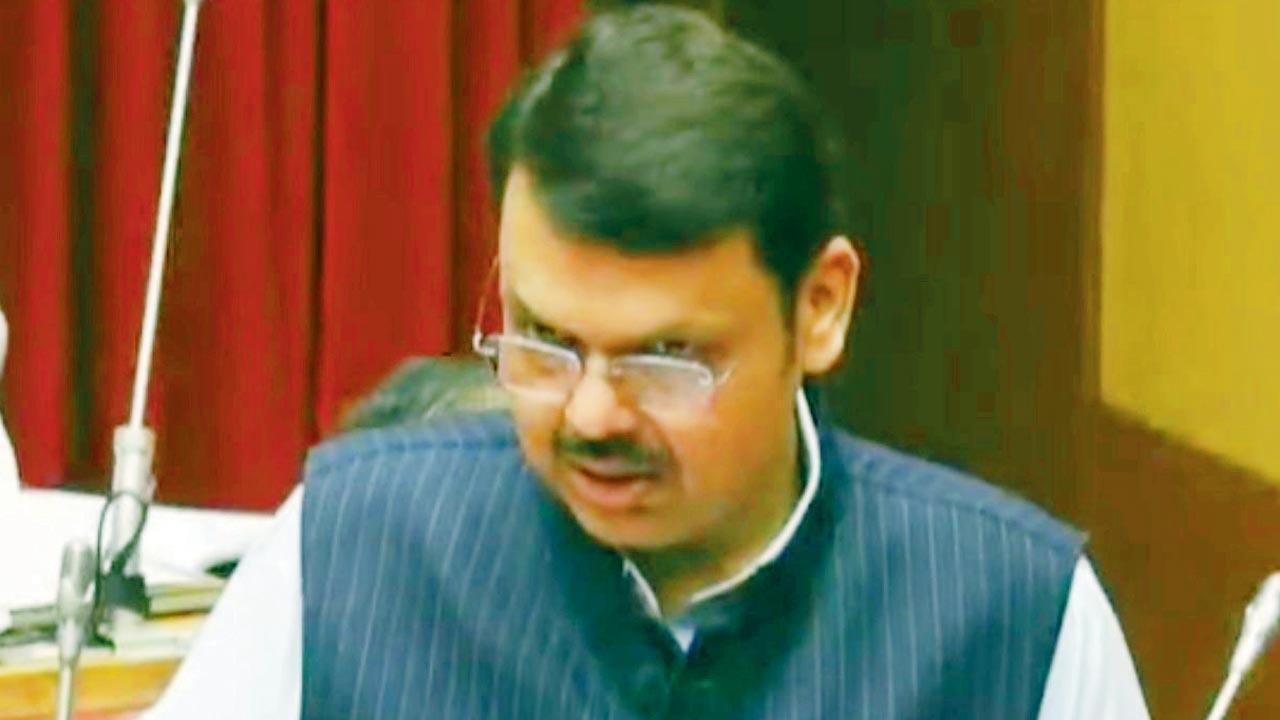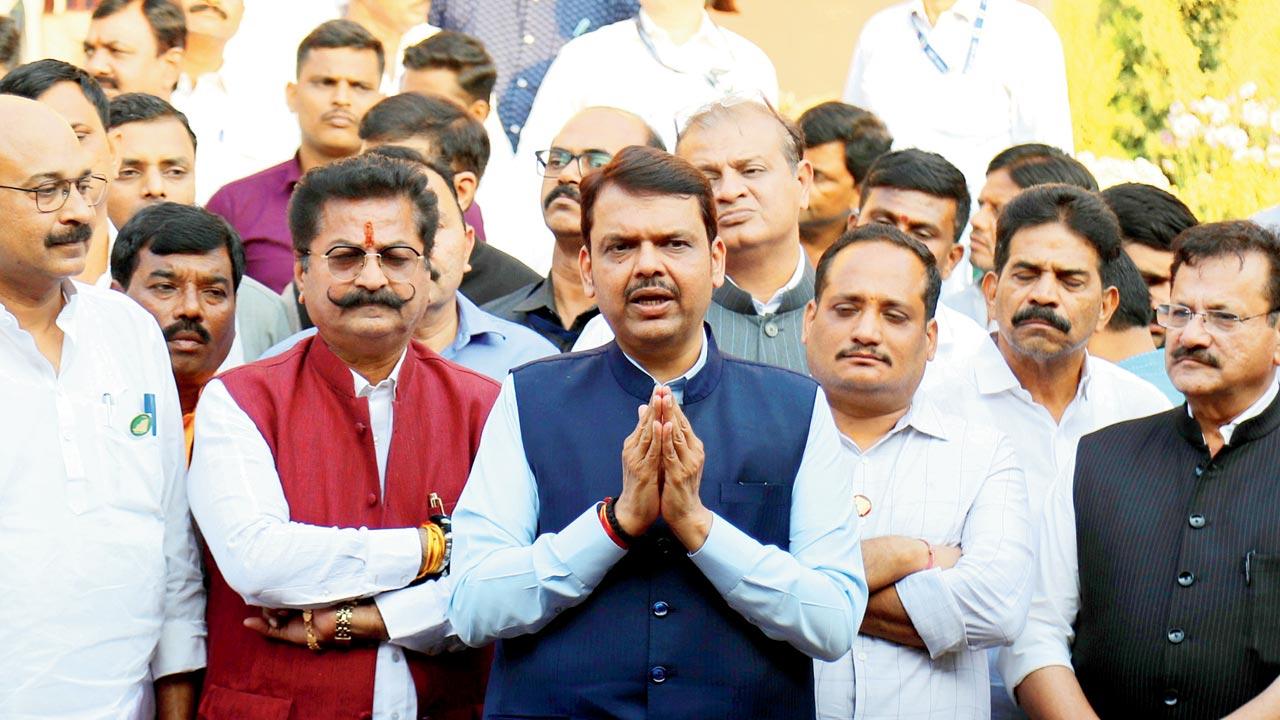Several MLCs take up issue of bonded labourers at Winter Session

DCM Devendra Fadnavis speaks during the Winter Session in Nagpur
The issue of the deplorable living conditions of underprivileged Katkari tribals and the bone-chilling case studies with harrowing tales of bonded labour that mid-day highlighted under its ‘End Slavery In The State’ campaign, was taken up by a number of MLCs in an hour-long discussion at the ongoing Winter Session of Maharashtra Legislative Council in Nagpur on Friday. The members including Kapil Patil, Shrikant Bhartiya, Manisha Kayande, Prasad Lad, Ambadas Danve and Parveen Darekar talked at length about the cases of bonded labour which mid-day highlighted.
Pressing their demands to improve the living conditions of the Particularly Vulnerable Tribal Group (PVTG), that is, the Katkari tribe, the members highlighted the efforts of activist Vivek Pandit, who has been rescuing the bonded labourers in the state.
Responding to the serious issue raised at the discussion, Deputy Chief Minister (DCM) and Home Minister Devendra Fadnavis agreed that the issues faced by bonded labourers and the Katkari tribe were crucial matters that must be discussed.
 Devendra Fadnavis, deputy chief minister
Devendra Fadnavis, deputy chief minister
Fadnavis raised the issue of nearly 20 bonded labourers who had been living under deplorable conditions in Ahmednagar as their captor Pankaj Khatik was not paying their wages and the poor tribals, including their children, were forced to starve for five days, prompting them to decide to return to their village in Igatpuri. However, their pickup van was obstructed by Khatik, who was forcing them to work without pay at his sugarcane field.
“It is correct to say that there was a delay in registering the FIR. I received a call from Vivek Pandit, who informed me about the delay. So, I immediately called the SP (Ahmednagar). Later, I was told that the FIR was registered without invoking the relevant Bonded Labour and Atrocities Act. I spoke to the SP again and the relevant Acts were invoked. So, there was a delay in registering a proper FIR… hence an enquiry is being conducted. If the officer (the in-charge of Newasa police station Shivaji Dohifade) is found to be guilty, then action will be taken against him,” Fadnavis said.
The DCM also spoke about the conditions of the Katkari community, who are extremely poor and prone to be enslaved to carry out agricultural and non-
agricultural work.
“The Katkari is a very poor community that remains out of their village in search of jobs for nearly seven months a year. They are more prone to become bonded labourers in the state. Cases of bonded labour are recurring issues in society. After such incidents come to light, discussions take place and action. Subsequently, those matters become stagnant,” he added.
“The Katkari community falls under PVTG. There are three PVTG communities (Katkari, Madiya and Kolam) in our state. For the comprehensive development and to stop migration among these PVTGs, it is essential that we provide them with employment opportunities,” he added.
Fadnavis further stated that the prime minister recently announced a mission called ‘PM-PVTG Mission’ aiming to improve socio-economic conditions of particularly vulnerable tribal groups (PVTGs). “The mission envisages availability of Rs 24,000 crore from the Development Action Plan for the Scheduled Tribes, for activities to be undertaken in the next three years under the mission,” he said.
The PM-PVTG mission aims to provide PVTG families and habitations with basic facilities such as safe housing, clean drinking water and sanitation, improved access to education, health and nutrition, road and telecom connectivity, and sustainable livelihood opportunities. “These tribals live in small hamlets. We have to build them homes, connect them with roads, install mobile towers, etc. which will be a game-changer for them,” Fadnavis said, adding that there is also a need for strengthening health and education facilities to improve the school drop-out rate and livelihood opportunities.
According to the DCM, those who don't have a home will be given a plot, and those without a plot will be given one as part of “our mission”. “We conducted a survey of these people, provided certificates to 25 such bonded labourers and rescued them from there. To carry out the rescue of these people, we are preparing a standard operating procedure (SOP), which includes the involvement of the police, revenue officials and police patil,” he said.
“If any irregularities are found in the identification, rescue and rehabilitation of bonded labourers, action will be taken against the individuals concerned. Those who have been freed from bonded labour will benefit from government schemes within three to four months,” promised Fadnavis.
Rs 24,000cr
Amount earmarked under scheme for tribal welfare
20
No. of cases of bonded labourers that were taken up
 Subscribe today by clicking the link and stay updated with the latest news!" Click here!
Subscribe today by clicking the link and stay updated with the latest news!" Click here!








